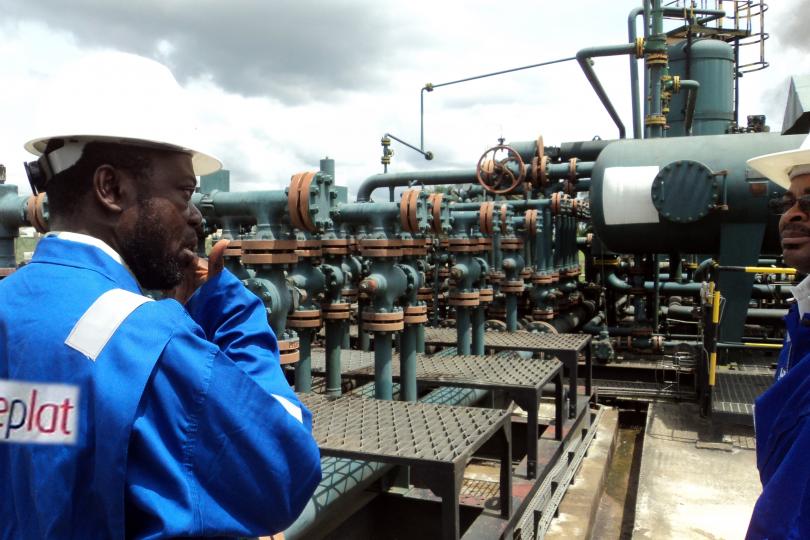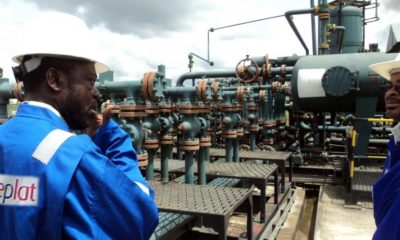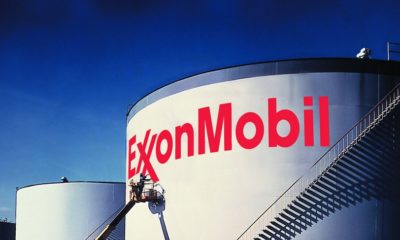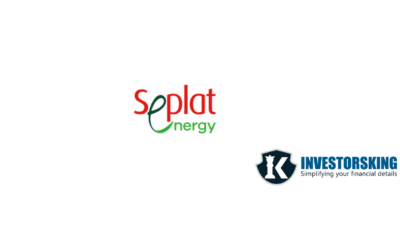Seplat Energy Plc on February 25 announced an agreement to acquire the entire share capital of Mobil Producing Nigeria Unlimited (MPNU), a subsidiary of ExxonMobil.
In its recent insight, Wood Mackenzie, a trusted intelligence provider that empowers decision-makers with unique insights on the world’s natural resources said in the energy transition era, both ExxonMobil and Seplat will be pleased with the deal, adding that the deal offers huge upside for oil as well as gas.
Also, Wood Mackenzie, the leading research and consultancy business for the global energy, power and renewable, resurface, chemicals, metals and mining industry, said because this deal is a corporate acquisition, NNPC has no rights to pre-empt a deal under the Joint Operating Agreement (JOA), which governs the JV, rather that ministerial consent would be the only hurdle remaining, “although nothing can be taken for granted”.
MPNU has a 40percent operated interest in a Joint Venture with NNPC (60percent). The JV includes OMLs 67, 68, 70, 104, the Qua Iboe oil export terminal. MPNU also has a 51percent interest in the Bonny River NGL Recovery project.
Seplat has agreed to pay $1,283 million plus a contingent consideration of up to $300 million. The effective date is 1 January 2021 and completion is expected in H2 2022, pending ministerial approval. Seplat’s debt financing of $825 million is fully committed by a syndicate of Nigerian and African banks, and energy and commodity traders.
Implications: If it completes, the deal will be transformational for Seplat Energy. It is already the leading indigenous company in Nigeria, but this will triple its working interest production to over 140,000 boe/d. In total, Seplat will operate 15percent of Nigerian oil production.
Crucially, the deal diversifies its operations into shallow water, which is largely devoid of the thefts afflicting its onshore operations. Although this is Seplat’s first offshore acquisition, it will acquire all of MPNU’s Nigerian staff, thus allaying any concerns about its operational capabilities.
Valuation
Our equity-based valuation of MPNU – excluding the Qua Iboe terminal – is $870 million (discounted 10percent, January 2021, $50/bbl long-term). However, at $70/bbl, we value the company at $1.678billion. In the energy transition era, ExxonMobil will be pleased with this deal. But so will Seplat, as the deal offers huge upside for oil as well as gas.
The portfolio includes a massive 1.3 billion boe of contingent resources, 75percent of which is gas. Less than half of its 70 fields have been developed. Although the JV has been in production since the early 1970s, its maturity relates more to the extensive infrastructure than the reservoirs themselves. Yes, many fields are in decline, but they have also been under-invested for over 20 years.
Seplat has built a business turning around the Majors’ unwanted assets, a process it started in 2010. With the acquisition, its portfolio becomes very oil dominated. ExxonMobil refused to be drawn into the high risk domestic gas market, and had no exposure to NLNG. As a result the acreage has the highest concentration of gas flaring in the country. Seplat, a listed company, will need to tackle this immediately.
Longer-term it will look to develop access into the domestic market in line with government policy, while there is also scope for LNG too. An FLNG project at Yoho on OML 104 was already under discussion before the deal. That could now accelerate, while long-term supply to NLNG is another option.
There is also possible upside from the Petroleum Industry Act (PIA) fiscal terms. Our analysis shows the JV portfolio would more than double in value if Seplat converts. However, this is far from certain, since it would have to relinquish up to 60percent of its acreage and much of the resource it has just acquired. A thorough review of its now extensive portfolio to identify the most advantaged barrels will be an urgent priority. The deadline for converting to the new fiscal terms is February 2023.
The deal is not without risks either. Seplat will have to find billions of dollars in the longer term to transform its portfolio and some rationalisation could follow. NNPC will of course be Seplat’s JV partner, and its ability to fund its 60percent equity longer term as it transitions to a limited liability company will be just as critical to the success of the deal.
ExxonMobil
ExxonMobil has been planning to sell its JV business for years, and its exit is overdue. The shallow water JV assets have long been non-core and are some of the highest-cost barrels in its global portfolio.
Although emissions were not a key driver for selling, the deal will help with its recently announced net-zero targets for scope 1 and 2 emissions. The portfolio has an intensity of 48 kgCO2e/boe, more than double its global average.
It can now focus on renegotiating workable fiscal terms for its Nigerian deepwater assets like Erha and Usan. However, if that does not end successfully, a country exit could be on the cards, given its deepwater options in Guyana and Brazil.
No NNPC pre-emption
Because this is a corporate acquisition, NNPC has no rights to pre-empt a deal under the Joint Operating Agreement (JOA), which governs the JV. This means that ministerial consent would be the only hurdle remaining, although nothing can be taken for granted.
Shell’s ongoing divestment of its subsidiary SPDC, similarly rules out pre-emption. If NNPC wants to acquire that portfolio, then it will have to out-bid the competition. If successful in raising up to $5 billion with Afrexim Bank it would have the firepower to do just that, and massively strengthen its position in the onshore delta.




 Naira4 weeks ago
Naira4 weeks ago


 News4 weeks ago
News4 weeks ago


 Naira4 weeks ago
Naira4 weeks ago


 Travel3 weeks ago
Travel3 weeks ago


 Jobs4 weeks ago
Jobs4 weeks ago
 Naira3 weeks ago
Naira3 weeks ago
 Naira3 weeks ago
Naira3 weeks ago
 Investment4 weeks ago
Investment4 weeks ago















